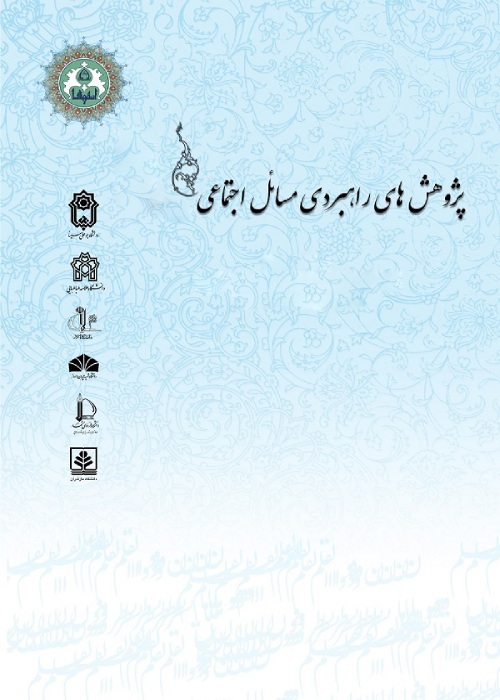Investigating the Relationship between Social Capital and Successful Quitting of Using Substances and Psychoactive Drugs in Isfahan
Introduction :
According to the report of the United Nations Office on Drugs and Crime (2020), over 356 million people around the world suffer from drug use disorders. It is estimated that 4.4 million people in Iran use drugs continuously or intermittently. Although most of the theoretical and experimental literature in the field of using drugs has focused on the causes of drug use disorder and its effects, the other side of the coin -- successful quitting of substance use—seems to have received less attention. People affected by substance use disorder are not necessarily social deviants, but they are patients who, like other patients, need treatment to return to the normal life process. Quitting substance use needs taking actions that help a person return to the healthy social life. According to the global statistics, more than 93% of people, who stop using drugs, return to them, as well as psychedelics, after a year. This statistic is estimated between 80 and 97% in Iran. It has been clearly approved that even the strongest and most effective medicines like opioid antagonists that prevent the return of drug use disorder have shortcomings and limitations and are not sufficient to treat addiction alone. Therefore, emphasis on social factors, along with biological and medical factors, can be taken into consideration for successfully encouraging quit attempts and treating psychotropic and psychoactive disorders. Social capital is one of the variables, which seems to be effective in this process. It is a type of investment in people’s social relationships to generate their expected benefits by engaging them in social networks and interactions. Social capital consists of various aspects of social organization, such as trust, norms, and networks, which can improve efficiency of the society by facilitating coordinated actions. Like other capitals, it is productive and provides the possibility of achieving specific goals that would be unattainable without it. Therefore, the current research sought to investigate the relationship between social capital and successful quitting of drug use.
This research was conducted by using a causal-comparative method, through which the two successful and unsuccessful groups in quitting drug use were compared. Given the research type, these groups were homogenized in terms of some demographic variables like age, sex, education, and so on. In total, 444 people (222 individuals in group 1 and 222 ones in group 2) were selected by using the multi-stage random sampling method. The research tool for measuring social capital was a researcher-made questionnaire consisting of 3 dimensions: social trust, social participation, and social awareness. To determine the validity and reliability of the research instrument, construct validity and Cronbach's alpha coefficient were employed, respectively.
According to the research findings, the averages of social capital and its components were significantly higher in the successful compared to the unsuccessful groups in quitting drug use. Furthermore, the results of logistic regression analysis revealed that social capital was significantly able to explain membership in the successfully quitting group. Based on the results, social capital approximately doubled the probability of membership in the mentioned group. This research finding was theoretically consistent with its theoretical framework. On the other hand, the findings were empirically in accordance with many pieces of research carried out by previous researchers. In general, this study concluded that social factors besides biological factors were effective in the treatment of drug use disorder as one of the basic problems of the society, which could be alleviated by paying more serious attention to them.
- حق عضویت دریافتی صرف حمایت از نشریات عضو و نگهداری، تکمیل و توسعه مگیران میشود.
- پرداخت حق اشتراک و دانلود مقالات اجازه بازنشر آن در سایر رسانههای چاپی و دیجیتال را به کاربر نمیدهد.





